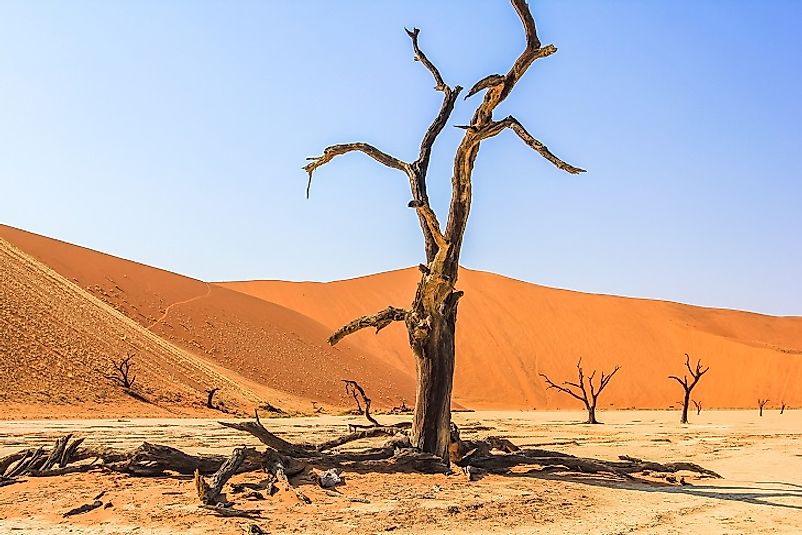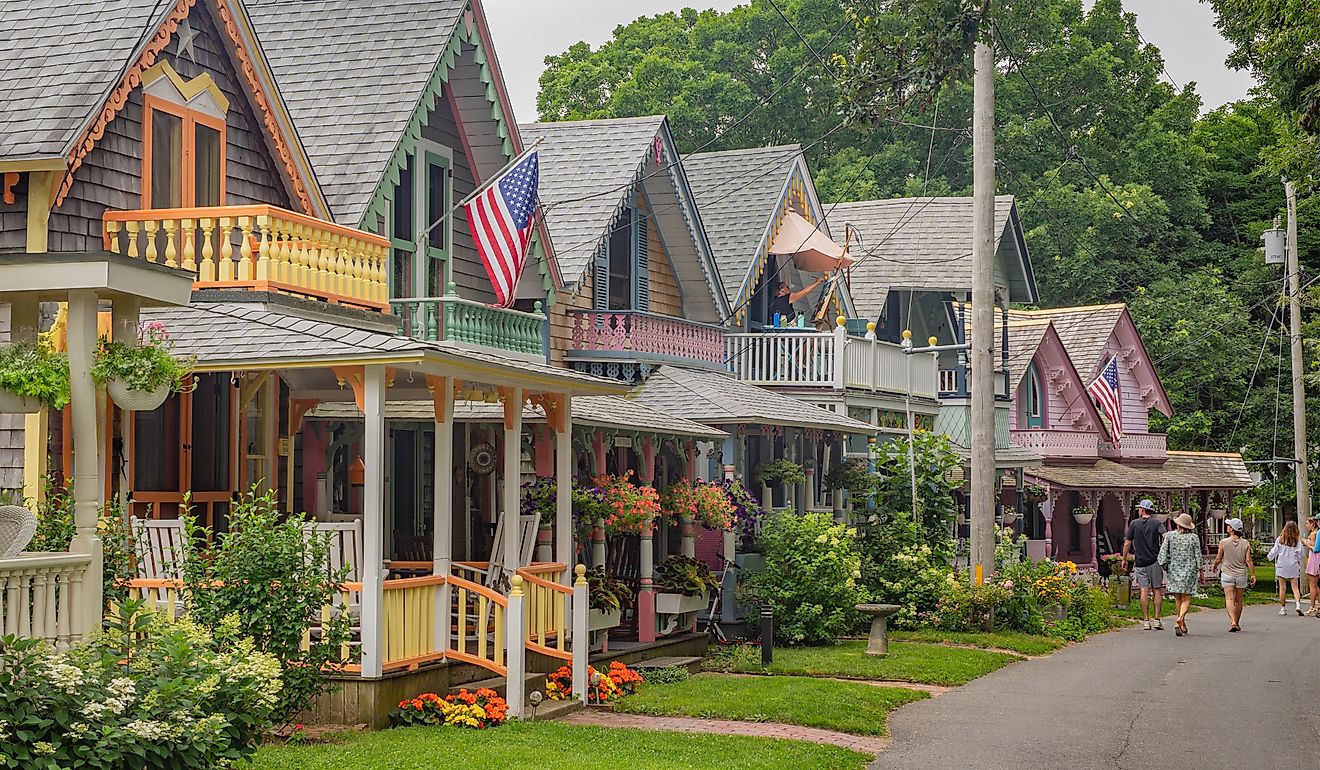Deadvlei - Unique Places Of Namibia

5. Black Trees, White Clay, and Red Dunes
Deadvlei, or the 'dead marsh", is one of the most unique places of Namibia. It is a famous White Clay pan which is situated near the Sossusvlei and located at the Namib-Naukluft Park. The white clay pan is also known as the “Dooie Vlei” and they are surrounded by sand dunes, the highest reaching heights of 300 to 400 meters, which are also known as the "Big Daddies". Sossusvlei is a salt and clay pan that is surrounded mainly by the Red Dunes and is a major visitor attraction of Namibia. It is also characterized by the black trees, which are the dark and dead camel thorn trees grown in the white clay.
4. Historical Role
The trees in Deadvlei is said to be around 900 years old, and died as there was no water left for them to survive. The skeletons of the trees which can be seen in the area are said to have died some 600 to 700 years ago, and are now found to be black because of the scorching sun. The trees are dead because the sand dunes blocked the flooded water of the Tsauchab River, but they did not get decomposed due to the dry climate. The red sand dunes which are present in the area are from thousands of years, and land seems to have barely rusted. It is also seen that the dunes are somewhere around 1,312 feet high that are almost like the Empire State Building. The climate is dry in Deadvlei that some trees have not decomposed, and they are somewhere around 1000 years old too.
3. Modern Significance
The area is a 44-mile drive to the dunes of Deadvlei in the Namib Desert, and one of its attractions is the sunrise or the sunset which tourists can experience. Even many films like The Fall, Ghajini and The Cell are shot on this beautiful location. The haunted and the old camel thorn trees provide an awesome opportunity to the photographers to capture the daytime and night moments as the black trees, white clay and the red dunes provide the best combination. The area is also being named as the place of no return, but one can also find some Salsola Shrubs and the clumps of Nara melon which subsist on the morning mists, and even the views of the sky here are among the clearest on the planet.
2. Habitat and Biodiversity
Tourists who come to this area can find the barking gecko, which calls from their burrow, as well as bat-eared foxes, Ludwig bustards, springboks, black-backed jackals, and the ground agamas. Even many large mammals, insects, reptiles, rodents, birds, and rare species of coastal fogs are found in the Deadvlei.
1. Environmental Threats and Territorial Disputes
The basic environmental threat which the area is having just because of the low amount of water and the arid and humid climate because of the scorched heat. The white clay pan in Deadvlei is now turning into a concrete floor and the photographers who are posing for the photograph in the area especially the trees need to be extra cautious because the trees are nearly dead.







